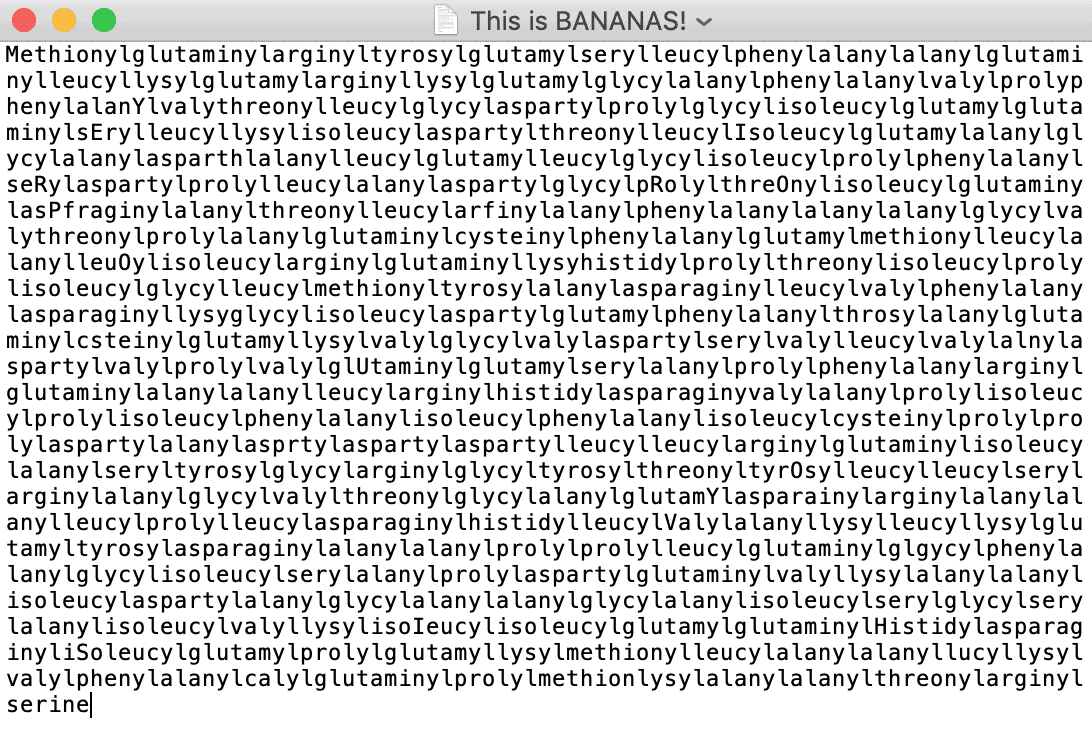English is a weird language: It is a Germanic language, meaning that its grammatical rules and main vocabulary come from Proto-Germanic.
Its first origins can be traced back to when the Angles and Saxons arrived at Britain sometime during the 5th century.
Once they had settled there, their isolation from their original group meant that the Old German they spoke began to morph into what we know as Old English.
After that, Vikings invaded the British Isles and infused the English language with a little Old Norse.
Subsequently, the Normans invaded Britain in 1066 and became the ruling elite, and, in the process, they added a ton of French and Latin words to the already over-stuffed English Language.
In fact, English contains so many French words that Georges Clemenceau, a former French Prime Minister, once said,
“English is just badly pronounced French.”
So, to recap, English is a peculiar combination of French, German, and Scandinavian. This is not to mention the influence of other languages such as Hindi and Arabic. See, I told you English is a weird language.
And, when a language evolves as a Frankenstein’s monster, taking bits and pieces from different languages, it is bound to have strange syntactic rules and confusing requirements, which is why some people might have difficulty learning the language.
To make matters worse, even when a sentence is grammatically correct, it can still be difficult to understand.
For example, “The horse raced past the barn fell down” is grammatically correct, but it can be hard to decipher thanks to the misuse of the passive voice.
A better way to write the sentence would have been “The horse that was raced past the barn fell down.”

It’s not just strange grammar; the words will drive you bananas
Aside from the erratic grammar, English is overflowing with strange words that can be hard to pronounce or are just plain confusing.
For instance, several words have more than one meaning, which can obscure their meaning within a sentence.
A simple case in point is the following sentence:
The red tape is holding up the bridge.
On the one hand, you could interpret the above sentence as saying that actual red tape is responsible for stopping the bridge from collapsing, in which case I wouldn’t cross that bridge even if my life depended on it.
However, the other more logical interpretation is that the red tape, which is used to refer to an opening ceremony as in “cut the red tape,” was holding up the bridge, which means it was delaying everybody on it.
So, the opening ceremony on the bridge made everybody late.
If you felt that that sentence was confusing, wait till you get a load of this one:

Don’t worry: That wasn’t a typo, and the above sentence is correct.
You see, the word buffalo has three different meanings:
- it can be used to refer to the hooved animal;
- it can mean to trick or to bamboozle someone;
- and it can refer to the city in New York.
With this little piece of information, try to take another stab at the above sentence and see if you can understand it.
By now, you should be convinced of how weird English can get, and in celebration of that fact, let’s take a look at some of English’s strangest words.
Enter the fascinating world of weird English words
We here at Linguaholic like to make sure that there is some method to the madness.
So, rather than just listing weird words, we have put them into different groups for your reading pleasure.
In the following list, you will find some of the longest and shortest words in the English language.
You will come across words that are a nightmare to pronounce and even worse to spell.
There are words, called onomatopoeia, that both describe a certain sound and make that same sound at the same time, and there are words that you’d never guess the meaning of based on the sound of the word.
Weird English words: The longest words in the English language
The English language has its fair share of long words, but it is nothing compared to its German cousin, where new compound words are formed from already existing ones every day, creating longer and longer words still.
Donaudampfschiffahrtsgesellschafts
-kapitän anyone?
That said, here are a few of the masterpieces English has to offer:
Floccinauccinihilipilification
At 30 letters long, this is one of the longest non-technical words in English.
It is used to refer to something that is considered worthless or of little to no value.
It is made up of four Latin words strung together:
- floccus, which means a wisp
- naucum, which means a trifle
- nihilum, which is Latin for nothing
- pilus, which means hair
Other words that have the same meaning include depreciation and undervaluing.
If you want to use it in a sentence, you can say something like this:
The Floccinauccinihilipilification of his results led the team to discard them.
Pneumonoultramicroscopicsilicovolcanoconiosis
A type of lung disease, this word refers to the ailment African miners suffered upon inhaling silicon silvers.
This disease is the same as the one suffered by coal miners when they inhale into their lungs particles of siliceous volcanic dust.
Coming in at a glorious 101 characters, this word is not to be taken lightly. And to be honest, I couldn’t even type this word out in my editor because it breaks the page.
So I had to put it in Adobe Illustrator and save it as a picture. I hope you guys don’t mind!
This crazy word was used by the Irish author James Joyce in his novel Finnegan’s Wake, which was published in 1939.
In the novel, the word is used to refer to the sound made by the thunderclap that was the harbinger of the downfall of Adam and Eve.

Our next word is a special term used to describe spice-filled foods that were made with the remnants of beef and vegetables. It also refers to a fictional meal that the ancient Greek playwright Aristophanes mentioned in one of his comedies: Assemblywomen or Ecclesiazusae.
You thought that one was crazy…well, think again! and look at our next WOOOOOORD.
It is actually that long and weird that it was impossible to get it into my WordPress editor, so I had to screenshot it for all of you guys. Here we go!
This is a word that almost every fluent English speaker learns at a young age and can both pronounce fluently and spell correctly with no trouble at all.
So, if you are having problems saying this word in one breath or writing it down with no mistake whatsoever, you need to brush up on your English and quickly. Honestly, what have you been doing with your life?
(By the way, that was a joke. I’d hate for someone reading this to actually think they are expected to spell this word correctly, let alone know how to pronounce. I’m not even sure the people who came up with the word know how to say it.)
Anyway, clocking in at 1,902 letters, this word is the longest word the English language has to offer; at least, that’s what the 18th edition of the Guinness Book of World Records says.
The word refers to a particular type of protein that carries amino acid which can be found in DNA strands.
However, if you want to talk to a friend about this type of protein, which is a common topic of conversation for most of us, you don’t have to use this behemoth.
Instead, you can simply use the shortened form, which is connectin or titin.
Weird English Words: the shortest words in the English language
The shortest words in English consist of only one letter. You have the pronoun “I” and the indefinite article “a.”
Some linguists consider the letter “O” as a word also: If you are a big poetry fan, you are probably used to seeing “O” being used all the time as a form of interjection.
You might even be familiar with the Coen brothers’ film “O Brother, Where Art Thou?” which was inspired by Homer’s The Odyssey.
In fact, some, including Dictionary.com, will go so far as to consider every single letter in the English language as a separate word with its own definition.
Interestingly, words in English tend to be shorter than in other languages.
As a matter of fact, James Nicoll, the Canadian freelance game and speculative fiction reviewer, once said,
“We don’t just borrow words; on occasion, English has pursued other languages down alleyways to beat them unconscious and rifle their pockets for new vocabulary.”
You see, because English is a hybrid child of several languages, it not only had to evolve while accommodating all its parents, but it also had to remain versatile enough throughout so that it was capable of taking on more new words from different languages without being affected greatly.
One thing that helped greatly in this endeavor was using short words and relying on a low morpheme per word ratio.
So, here are a few short words that are worth taking a look at:
Aa
Aside from one letter words, this short word would probably make it to the tippy-top of everyone’s dictionary.
Obviously, aa could be an acronym that refers to one of many things, such as American Airlines or Alcoholics Anonymous.
However, throughout this list, we are skirting away from acronyms because the moment we start looking at acronyms that produce weird words, we’ll never stop.
That said, aa describes a certain type of lava that is usually basaltic; the other type of basaltic lava is called pahoehoe.
The word “aa” has Hawaiian origins, and it describes lava that is chunky and contains many floating pieces that are angular.
Aa lava comes about when the lava flow is so quick that heat is dissipated quickly, resulting in higher viscosity.
Eunoia
Even though this word might not seem particularly short, it is special. It is the shortest word that contains all the five main vowels, excluding “y.”
It comes from the Greek language and is similar to the word “euphoria” in that it refers to something positive.
“Eunoia” describes the positive rapport a speaker builds with their audience, the sort of positive energy a speaker feels when they are on a roll and the audience is tuned into their wavelength.
Weird English Words: the hardest words to spell
Today, we live in a digital age, where you never have to worry about misspelling a word because trusty spellcheck has your back. More importantly, even if the word processor you are using doesn’t recognize a certain word, you can always double-check with Google.
However, when we learn how to spell English words, we aren’t taught that we should leave things to our word processor and Google.
Rather, we learn a few rules that we use to break down words and spell them. Yet, not all the words follow these rules, which can make it frustrating for the best of us.
Here are a few renegades that refuse to play by the rules:
Weird
There is something almost poetic about this word showing up on a list of “weird” words.
You see, one of the rules we learn early on is “I before E, except after C.”
So, you have “achieve,” “field,” and “believe” on the one hand, and you have “receive,” “conceive,” and “perceive” on the other.
As a general rule of thumb, the above adage works just fine, except when it doesn’t.
The word “weird” is one of those cases where the “I before E” rule fails. Instead, the “E” precedes the “I.”
Pochemuchka
The problem with this word is that if you scour the internet, you won’t find two people who pronounce this word in the same way.
Some will tell you that the second “ch” should be silent, while others will give it a certain inflection that might convince you that there are a few vowels missing.
Regardless, the end result is a word that is a nightmare to write.
Pochemuchka comes from Russian, and it is used to describe someone who asks too many questions. It is usually used to describe children who keep asking “why” all the time.
Gobbledegook/ gobbledygook
Alright. So, this word is weird in more than one way. For starters, it looks like gibberish, like the kind of word a toddler learning how to speak might come up with. To make matters worse, there is no agreed way of writing it, which muddies the waters further.
Let’s start with the definition. Saying that gobbledegook is gibberish isn’t really that far from the truth.
The word literally means incoherent babble, the kind that makes no sense and can’t be distinguished from random noises.
It’s what a foreign language may sound to you the first time you hear it.
It’s also what you might hear when someone starts using a lot of highfalutin jargon with you that makes no sense at all.
As for the spelling, well, it’s a matter of whether you are going for British English as opposed to American English.
In British English, gobbledegook is the more preferred version, whereas gobbledygook is of American origin.
Bearing all this in mind, it is worth noting that the American variant, gobbledygook, is more popular than its British sibling, gobbledegook, appearing almost three times more.
Kakorrhaphiophobia
If you are paying attention, you’ve likely noticed the phobia at the end of this word, which connotes that this is a fear of some kind.
After all, claustrophobia is the fear of enclosed spaces, and arachnophobia is the fear of spiders.
So, what could kakorrhaphiophobia be?
Well, it is the fear of failure.
In some cases, this phobia can be so severe that it becomes crippling, preventing the individual from taking any action.
At its most severe, an individual suffering from kakorrhaphiophobia could be so scared of any type of failure whatsoever that they don’t take on any endeavors in their personal or professional lives.
Interestingly, atychiphobia also means to have an irrational fear of failure.
Hacek
In some languages, like Czech and Lithuanian, certain letters take an inverted circumflex above them to indicate that this letter should be palatalized.
This mark is called a hacek, and the difficulty of spelling comes from the fact that the “c” right in the middle of the word should get a hacek above it, making it sound like a “ch.”
If you don’t know the word and are hearing it for the first time, you would be forgiven for writing it as “hachek” instead of the correct spelling.
Weird English words: the hardest words to pronounce
It’s interesting to think that words that are difficult to pronounce tend to be tough to spell; after all, we write what we hear.
Yet, there are some English words that you may find hard to pronounce even when they are spelled out right in front of you.
Again, this is just one more reason the English Language can be so baffling.
So, without further ado, here are a few words that you might have a hard time pronouncing. If so, don’t be afraid to let Google or Youtube help out.
Lasagna
When you see this word spelled out and then you hear someone say it, you are bound to do a double-take.
I mean, where does the G go? And, why is there an “ia” sound at the end of the word? None of it makes any sense.
The word is pronounced as “Luhzania” despite how it is written. A similar word is Bolognese, where the “g” performs another disappearing act, one that would make Houdini proud.
If you are as confused as I was when I first saw lasagna written out, here is the explanation: Even though most people believe the lasagna is an Italian dish, it originally comes from Ancient Greece.
In fact, the word “lasagna” itself comes to us from the Greek word “Laganon,” which is the first form of pasta we know of.
On an interesting side note, while the name “lasagna” can be traced back to the Greeks, the first actual recipe we have of this scrumptious dish comes from an archaic cookbook in Britain.
Nevertheless, to give credit where credit is due, the Italians are considered the ones who perfected this dish.
Choir
My first encounter with this word threw me for a loop. How it is written and how it is pronounced are so different that you wouldn’t guess that they were the same word.
The word is pronounced as “kweyer.”
And, although I’m willing to forgive the fact that the “ch” gets pronounced as “k”- this isn’t the first time this has happened in the English language – I am completely flabbergasted by why there is an “eye” sound that almost pops out of nowhere.
In almost every other word, the “oi” gets pronounced as either “wa” or “oy.”
You can find the former pronunciation in “noir” and “soiree,” and you can find the latter pronunciation in “oil,” “foil,” “toil,” and “soil.”
If you don’t know what a “choir” is, it is a group of singers who sing in unison.
You can find them at churches, in the opera, or in the street. The French call them the chorale.
Colonel
If you thought “choir” was strange, wait till you get a load of this one. This word is pronounced as “kernal.”
Assuming that you’re not already familiar with this word, you should be grappling with several questions, the simplest of which is where did the “r” come from?
To this, I tell you again that English is a hybrid language with a hodgepodge set of rules that seem to be put together arbitrarily.
However, should you want a specific answer to why “colonel” is pronounced as “kernel,” this is the best answer I can find.
The word originally comes from “colonnello,” which is an Italian word that was derived from another Italian word, “colonna,” which means column.
Now, the reason a colonel is named after a column was that this rank was given to individuals commanding a column of troops.
Now, the French adopted this word, and when they translated it into their own language, they morphed it a bit, making it “coronel.”
English, like any child brought up between two separate homes, tried to get the best of both worlds: It retained the Italian spelling but appropriated the French pronunciation.
Weird English Words: words that mean exactly what you expect them to mean
Sounds can have a powerful impact on us. When arranged in a certain way, we call it music.
A high-pitched sound can convey a very different emotion than a low-pitched one, and a rapid tone exudes a feeling that is quite different from a drawn-out pitch.
Well, words are sounds that we emit and use to refer to something else in the world, and we cannot help but ascribe some emotional valency to certain words based on their sound, regardless of what they actually mean.
That is why we might prefer certain words or names just based on how they sound, while we might find other names or words irksome.
In fact, if you have some time to kill, you can browse the internet and look up a list of “gross-sounding words.”
What you’ll find is that the word “moist” tends to make it to the top of those lists almost every time without fail, making it the most hated word in the English Language.
Now, the sound and the object being referred to, also known as referent, are usually unrelated in any way.
However, sometimes, the two are connected somehow.
For instance, onomatopoeia is a word that sounds like the thing it is referring to.
Here are a few examples to give you a clear idea of what we are talking about:
Gushing
Imagine reading the phrase “the gushing river went all the way to the sea.”
Not only does the word “gushing” help you paint a mental picture, but it also sets the scene because the sound of the word isn’t too far from the sound you’d expect the river to make.
Buzzing
So many things in our lives buzz. Bees buzz. Our phones buzz.
This is not to be confused with humming, which is also an onomatopoeia.
I’m betting when you see the word buzz, you can almost hear the sound the bee or phone makes as well as feel the tiny little vibrations in your ear.
Thump
By now, you should have a clear idea of what constitutes an onomatopoeia, but let’s look at this last example for good measure.
A thump is that dull sound you hear when something heavy hits a hard surface.
So, the rock fell off the table and hit the floor with a thump, but the metal tray hit the floor with a clang.
Despite onomatopoeias being unique words, we are going to look at words that don’t necessarily qualify as such.
The following words might sound strange, but their sound gives you a decent hint as to what they mean.
A perfect case in point we’ve already seen is the word gobbledygook.
tittynope
You might not know what this word means, but from how it sounds, you might have a feeling that it refers to something small, in which case you’d be right.
Tittynope describes small quantities of leftovers. It is an old English word that comes from the 18th century.
Lollygag
Maybe it’s the “lolly” part or the “gag” part, but, in either case, this word looks like it has something to do with having fun.
The actual meaning of this word is to mess or joke around.
Brouhaha
From the “haha” at the end, you might have guessed that this word has something to do with uproarious laughter.
Yes and no.
You got the uproarious part right, but the laughter part wasn’t quite accurate.
“Brouhaha” is used to refer to a loud ruckus, fuss, or argument.
It has French origins and originally was supposed to mean “noisy chattering.”
The idea is that this word is used to refer to an argument that is all noise but no substance, one that doesn’t ever become a serious debate.
Kerfuffle
Regardless of whether you know this word or not, your gut should be telling you that this word has something to do with commotion, particularly because of that “fuffle” part.
After all, no one likes to get their feathers “ruffled,” especially when they are in a “scuffle” over how they “shuffle” a deck of cards.
Well, the word “kerfuffle” describes a disturbance or commotion, one that arises as a response to some controversy or conflict.
As for the “fuffle” part, it turns out that it is actually Scottish English and means “to dishevel.”
Another fun Scottish English expression is “Dinna Fash.”
Weird English words: words that don’t mean what you think they mean
We’ve just seen words whose sound gave us a good idea of what they meant.
At the other end of the spectrum, there are some words whose sound could actually mislead you. Here are a few of them:
Snickersnee
From the sound of it, you’d expect this word to refer to something happy and nice, or at the very least something cute.
However, a snickersnee is a long knife that was used as a weapon in cut-and-thrust fight back in the eighteenth century.
It is still used today, but it has been going out of fashion lately and may soon become obsolete.
The word can actually be broken down into three main components: “snick,” “or,” and “snee.”
The word “snick,” or its earlier version “stick,” comes from the Dutch word “steken,” which means to thrust or stab.
On the other hand, the word “snee” comes from the verb “snijden” which means to cut.
Wabbit
On the one hand, this word looks and sounds so much like the word “rabbit” that we can’t help but feel that the two must be related somehow.
After all, anyone who grew up watching Bugs Bunny as a kid is no stranger to Elmer Fudd hunting that “wascally wabbit.” However, that couldn’t be farther from the truth.
The fact of the matter is that “wabbit” is a Scottish term and means exhausted to such a degree that you are unable to function.
Snollygoster
There is something seemingly fun about this word, which sort of sounds like an earlier word we came across, “lollygag.”
However, unlike “lollygag,” “snollygoster” does not refer to something fun or enjoyable.
Instead, it describes a crooked politician who does what’s best for them rather than following what their principles dictate.
Even though the origin of this word is uncertain, some people believe that it is somehow related to “schnelle geister,” which is German for “quick ghosts.”
Nudiustertian
This word deserves to be on several lists. For starters, it is both hard to pronounce and difficult to spell.
However, when it comes to misleading sounds, this word gets the cake.
Just by looking at it, you’d think that this was the name of some famous Dutch scientist or some archaic book that can only be found in the vaults of the Vatican.
However, the answer is far simpler than that.
“Nudiustertian” is used to refer to the day before yesterday. It’s that simple.
Obviously, this word is so convoluted that most English speakers would prefer saying “the day before yesterday” over “nudiustertian,” which says a lot about the English Language and English speakers.
Anyway, the word comes from the Latin “nudius tertius,” which in turn comes from the Latin phrase “nunc dies tertius est” which translates to “now is the third day.”
Yarborough
When I first saw this word, I assumed it was a farming term of some kind. And, if it wasn’t, then it had to be something related to the forest or the woods. I was wrong.
“Yarborough” actually relates to card games. It is used when a dealer in a card game deals a hand with low cards, the highest of which is less than a nine.
Whether this is good or bad depends on the game being played. The term is more familiar among bridge and whist players.
The story of how such a hand of cards came to be named a “Yarborough” is an interesting one.
Charles Anderson Worsley, who was an English nobleman and the second Earl of Yarborough, was an avid card player, but, at some point, he got frustrated from hearing his friends complain about getting these worthless hands.
So, to make things interesting, the Earl of Yarborough would bet his friends a thousand to one against getting such a bad hand.
The good news for the protagonist of our story is that the bet served him well as the actual odds against such a hand are more like 2000 to 1.
Donnybrook
“Donnybrook” sounds like the name of the kid who lived down the street when you were growing up. You might have even played with him on the street.
Odds are some of the very readers of this article went to school with a Donny Brook or just know someone by that name.
However, no matter how many Donny Brooks you’ve met in your life, nothing can prepare you for the fact that the word “DonnyBrook” means an uprising, a riot, or a fight.
The term comes to us thanks to the Donnybrook Fair, which took place in Donnybrook, Dublin.
The Donnybrook Fair was notorious for being disorderly and chaotic. The fair took place every year, starting from 1204 all the way till the 1850s.
If you are wondering where the town of Donnybrook got its name from, you might be happy to learn that Donnybrook actually hails from the Irish “Domhnach Broc,” which translated to “The Church of Saint Broc.”
Weird English words: words that mean something and its opposite
At the beginning of this article, we looked at words that had more than one meaning and saw how that could be confusing.
However, having more than one meaning doesn’t necessarily make a word weird; having two opposite meanings does.
Words that mean something and its opposite are called contronyms, Janus words, or auto-antonyms. They can only be understood through the surrounding context.
There are two main ways a word becomes a contronym:
You could have two different words that have different etymologies, but, with a little bit of time, these two words converge into one.
The other possibility is that a single word acquired a different and opposite meaning to its original one over time.
Here are a few contronyms for your viewing pleasure:
Cleave
The first definition of cleave is to join or cling onto something. For instance, you could say, “the scared infant cleaved to his mother.”
Alternatively, the other definition of cleave is to split something, usually by cutting it. You could say, “the lumberjack cleaved the log in twain,” which means that he cut it in half.
Dust
This is one word you probably weren’t expecting to find on this list.
After all, who doesn’t know what dust is?
But, we are more interested in the verb “to dust” as opposed to the noun form of the word.
You see, “to dust” can either mean to clean something by removing the dust on it or mean to dirty something by adding dust and dirt onto it.
So, you could tell your friend, “Please, help me dust this table,” which is a request to help you clean the table.
Alternatively, you could also tell your friend, “Stop dusting the table,” which is a request to stop spreading dust all over the table.
enjoin
Before you get ahead of yourself, the answer is no: This word has nothing to do with joining things together.
Instead, the word can mean to instruct someone to do something or command them.
But, it can also mean to prohibit someone from doing something or forbid them from it. If you want to use the word “enjoin” to mean command, you could say, “The judge enjoined the company to bring forth all of its legal documents.”
On the other hand, if you want to use it to mean prohibit or forbid, you could say, “The judge enjoined the company from abusing its employees.”
peruse
Perusing pertains to reading. However, it could refer to skimming something and reading it without paying attention to detail, or it could refer to reading something carefully and paying attention to the minutiae.
Ergo, the sentence “I peruse the newspapers in the morning” can be confusing without proper context:
Does the speaker mean they skim the newspapers quickly because they may be pressed for time?
Or, do they mean that they read the newspaper carefully and take their time analyzing every detail?
What makes something weird?
Throughout this article, we’ve looked at numerous examples of words that we consider weird. But, why were those words weird in particular? What makes something weird?
Well, if something stands out from the rest of its peers, then it is, by definition, weird.
So, words that are longer or shorter than your average word would definitely qualify. Words that sound alien or foreign can also be counted as weird.
Additionally, any word that bears within it an inherent inconsistency of some sort should count as weird.
The good news is that English, the mixed baby of languages, is filled with words that contain all these qualities and more.
Hence, there will always be an overabundance of weird words, and you will always find new ones.
If you still feel like you need some more crazy English words, why not read a little bit about FUGAZI?!?

Hey fellow Linguaholics! It’s me, Marcel. I am the proud owner of linguaholic.com. Languages have always been my passion and I have studied Linguistics, Computational Linguistics and Sinology at the University of Zurich. It is my utmost pleasure to share with all of you guys what I know about languages and linguistics in general.
















